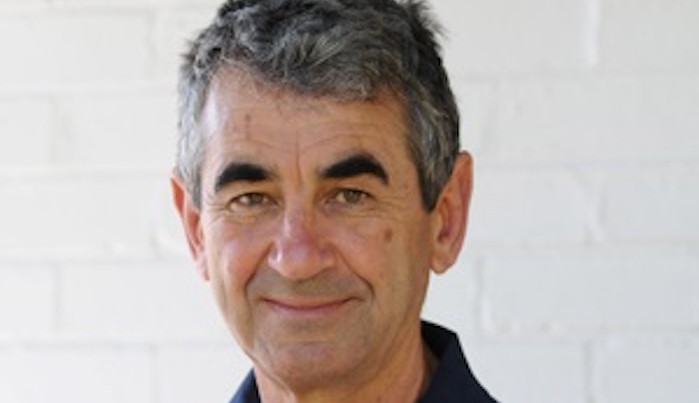Prof Anton Eberhard is “completely wrong” regarding his stance against new nuclear power in South Africa because his demand predictions are off by 23GW, according to energy analyst Andrew Kenny.
Kenny was responding to an opinion piece Eberhard wrote in Business Day on Tuesday, in which he said South Africa does not require nuclear energy and should end its procurement programme due to its potentially high costs.
The country is on the verge of taking the next big step in nuclear, with the promise that the Department of Energy would release its request for proposals to vendor countries France, Russia, South Korea and China to build 9.6GW of nuclear power by Thursday.
“To meet even a modest 3% economic growth, and to replace our ageing coal plants, I estimate we shall need an extra 46GW of capacity by 2030,” Kenny explained in emailed correspondence. “The projects Eberhard mentions will barely bring in 20GW.”
Cabinet’s energy war room adviser, Eberhard said trends reveal that electricity consumption – which is falling – is no longer linked to economic growth.
“Official electricity demand forecasts and plans are obsolete,” Eberhard explained. “If demand for electricity were to reignite, it would fire off a lower base, and the rate of growth would be lower.
“When we project demand forward to 2030 or beyond, it’s obvious that we need a lot less power than was forecast in the Integrated Resource Plan of 2010,” said Eberhard, who specialises in infrastructure reform and regulation at the University of Cape Town’s Graduate School of Business.
Kenny disagreed. “If you look at a graph of SA’s electricity consumption over the last 60 years, you will see it rising steadily until 2007, when it suddenly stops,” he explained. “This was because we ran out of supply – not demand.
“Because of our failure to build power stations in the 1990s, Eskom could not meet demand,” he said. “This has had catastrophic economic effects, costing hundreds of billions of rand, choking growth, killing industrial projects, shrinking industrial production, increasing unemployment.”
SA has ordered enough power stations
Eberhard said the country had already ordered enough power units to meet his demand prediction. That includes 9.6GW of coal from Medupi and Kusile, 1.3GW from Ingula, 1GW from peaking power stations Desisa and Avon, 1GW from co-generation and coal independent power producers (IPPs) and 6.347GW from the renewable energy IPP programme.
He said while the renewable plants were intermittent (they offer on average 30% reliability), the 3GW of gas power plants being procured will fill that gap, as will the 2.5GW of hydro that will come from the Inga 3 development in the Democratic Republic of Congo.
“Our cheapest sources of power are now wind and solar energy,” Eberhard said. “The Department of Energy has awarded long-term, fixed-price contracts for wind energy as low as 57c/kWh, far below Eskom’s average cost of supply.
“Renewable energy combined with gas power can offer reliable base load supply at less than R1/kWh. Imported hydro and coal IPPs will also beat this,” he said. “I challenge any nuclear power vendor to sign a long-term power contract at less than R1/kWh.”
Again, Kenny disagreed, saying nuclear power is the country’s best option for new baseload and criticised renewable energy as the cheapest solution.
“All around the world, wind and solar for grid electricity have proved staggeringly expensive and unreliable,” said Kenny. “Germany’s wretched ‘energiewende’, where nuclear was phased out and replaced with wind and solar, has been a disaster, especially for poor people, with soaring electricity prices for users (although fat profits for the developers, thanks to massive subsidies with guaranteed high prices).
“Wind and solar are not only expensive in themselves, but impose huge costs on other generators that have to react to their violent, unpredictable ups and downs.
“SA’s own REIPPPP (renewable energy programme) repeats other nations’ follies,” he said. “The bidders compete not to provide market power, but to receive the least enormous subsidy, again high guaranteed prices for their electricity, whether it is needed or not.
“The more wind and solar, the more expensive will be our electricity,” he said. “The more nuclear, the more economic.
Nuclear can be built on time
Responding to Eberhard’s concern that the “risks of cost overruns are greater” with nuclear projects, Kenny said: “Always, the anti-nuclear brigade quotes the failures of a single nuclear reactor, the French EPR.”
“I agree this has been a financial fiasco at Olkiluoto (Finland) and promises to be one at Hinkley Point (Britain),” he said. “But other reactors around the world are being built economically and on time.
“In the United Arab Emirates, South Korea is building four new APR1400 Generation 3 reactors of 1400 MW each,” he explained. “They are economic ($3778/kW) and I believe the construction is ahead of schedule.”
Eberhard said nuclear will be irrational and called on government “to demonstrate that this initiative is not corrupt and will not be ruinous for the economy”.
On the contrary, Kenny said nuclear is certainly necessary. “There is no reason new nuclear power for SA should not be economic and affordable,” he said.
[Source: News24]





 WhatsApp us
WhatsApp us 

